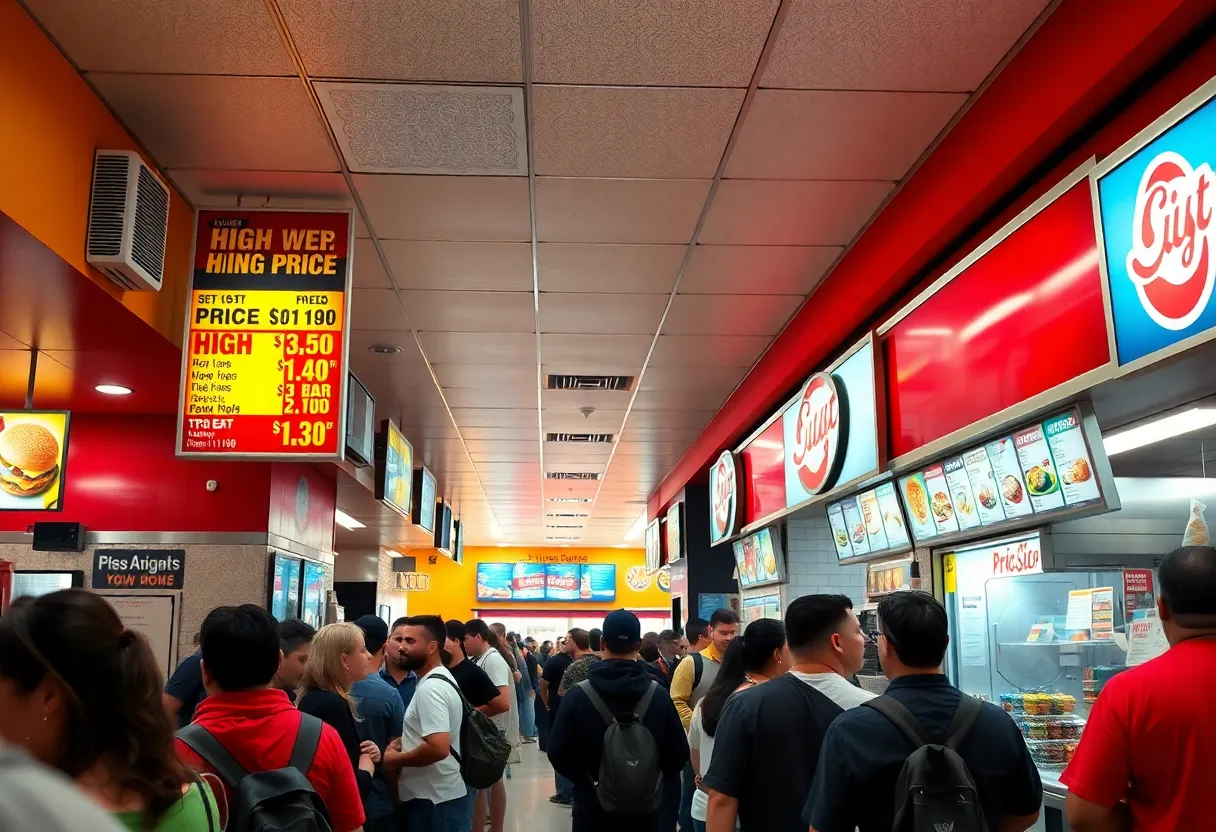News Summary
The Fast Food Minimum Wage Law in Los Angeles, which raised wages to $20 an hour, has led to job losses and price hikes. Reports show a loss of over 22,000 jobs and fast food prices rising by 14.5%. Complaints about the law’s impact are increasing, with significant concerns from Latino-owned businesses. The future of the law remains uncertain as discussions about further wage increases are looming, prompting operators to consider cuts in staffing and hours.
Los Angeles Buzzes Over Fast Food Minimum Wage Law’s Impact
In Los Angeles, the bustling heart of California, the fast food scene is stirring with mixed feelings as the Fast Food Minimum Wage Law—officially known as Assembly Bill 1228—celebrates its first anniversary. This proposed change upped the minimum wage for fast food workers to an ambitious $20 an hour. While it aimed to improve the livelihoods of thousands of employees, it has unintentionally led to some disconcerting side effects.
Job Losses in the Fast Food Landscape
Recent reports indicate that California has seen the loss of around 22,717 fast food jobs over this past year, a significant figure when adjusted for seasonal trends. This metric has left many scratching their heads as to what went wrong, and wondering if a better approach could have been taken.
Rising Prices Leave Customers Disheartened
Alongside job losses, fast food prices have experienced a hefty spike, with costs surging by 14.5% since the law was enacted. Comparatively, the national average only rose by about 8.2%. Consumers are feeling the pinch, and many are wondering if this was the change they really hoped for. As popular items at drive-thrus hit new price highs, families are forced to rethink their fast food habits.
The Ripple Effect on Restaurant Operations
Exemptions and Local Concerns
To address mounting concerns about job losses, exemptions have been made for certain restaurants located in airports, stadiums, and other high-traffic areas. As we approach June 2024, projections indicate that the total number of jobs lost may surpass 10,000, although the Governor’s office contests these claims, insisting that job growth continues within the fast food sector.
Voter Response and Future Predictions
In light of growing fears regarding job security, California voters shunned Proposition 32, a measure designed to hike the minimum wage statewide to $18. Meanwhile, estimates suggest that by 2025, job losses in the fast food industry could reach 16,000, with projections of further declines looming.
The Shift Towards Delivery Services
Moreover, a significant number of fast food roles are being replaced by third-party delivery services like DoorDash and Uber Eats. Many fast food restaurants find themselves facing a crossroad: should they raise prices, cut hours or jobs, or even consider closure? For many small business owners, it’s become a real game of survival.
Impact on Latino-Owned Businesses
Voices from the community are growing loud and clear, especially from the Latino Restaurant Association, whose members worry that the wage hike disproportionately harms Latino-owned eateries. Many local restaurant owners have even written a letter to the Fast Food Council and the Governor, urging them to reconsider discussions surrounding wage increases due to the economic repercussions they are witnessing.
Time for a Re-evaluation?
As the discussion continues, 87% of fast food operators have shared that they expect to make further staffing cuts this year if the current trends persist. However, a study conducted by the UC Berkeley Center on Wage and Employment Dynamics posits that the law hasn’t significantly reduced employment or caused considerable price hikes since it launched.
A Look Ahead
As California’s fast food minimum wage stands even higher than San Francisco’s and the state’s minimum wage, the Fast Food Council is slated to consider raising the wage again to $20.70 later this year. With opinions divided and stakes running high, the upcoming discussions could shape the future of fast food employment and dining across the Golden State.
For now, both employees and consumers in Los Angeles and beyond will be watching these developments closely, hoping for a resolution that doesn’t lead to further job losses or price hikes at their favorite fast food spots.
Deeper Dive: News & Info About This Topic
- Mercury News
- KTLA
- California Employment Law Report
- The Guardian
- Axios
- Wikipedia: Minimum Wage
- Google Search: California minimum wage
- Google Scholar: California fast food wage impact
- Encyclopedia Britannica: Minimum Wage
- Google News: California fast food wage law








